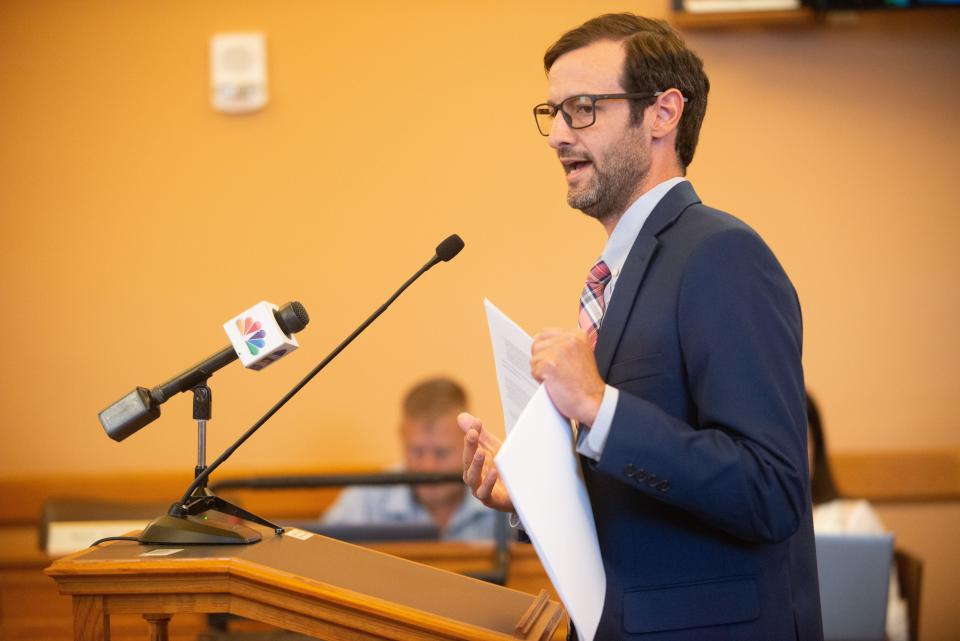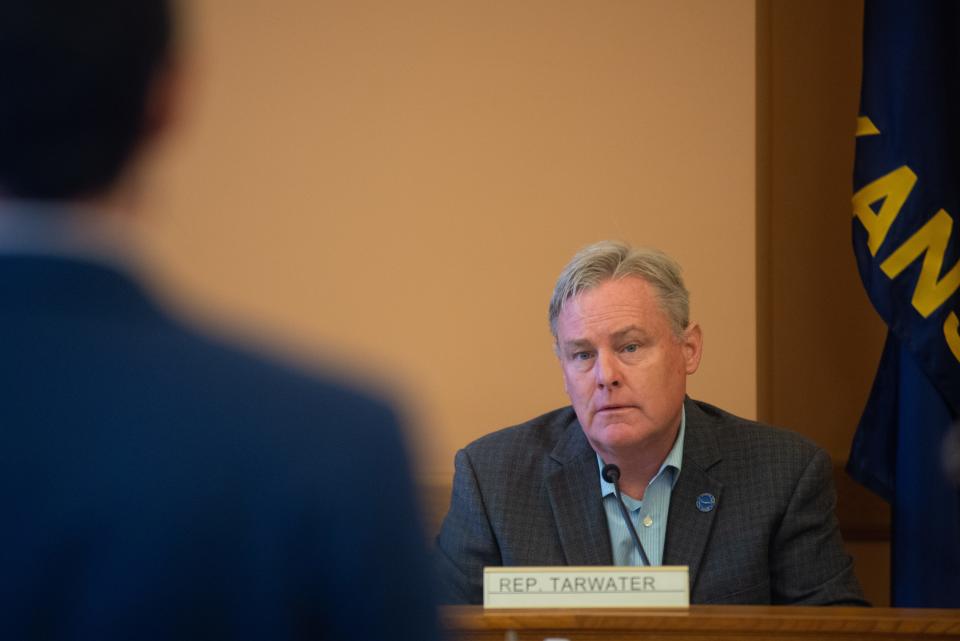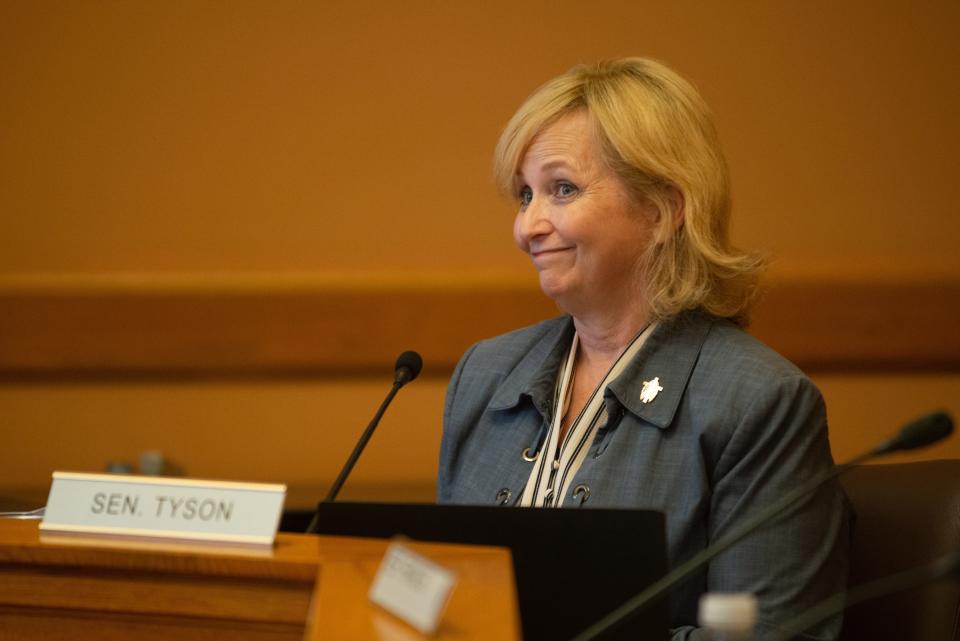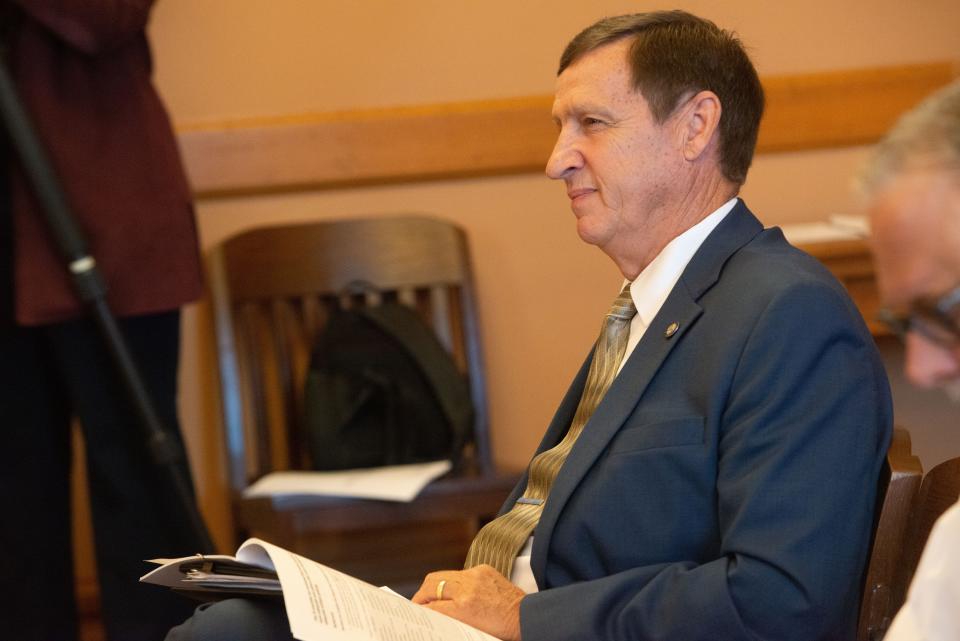Kansas counties lag on some election security measures. Here's what that means for policy
- Oops!Something went wrong.Please try again later.
Kansas counties have room for improvement when it comes to testing voting machines and other election security best practices, a report released Thursday from the Legislature's nonpartisan auditing arm said.
The audit, requested last year by Sen. Dennis Pyle, I-Hiawatha, comes as Kansas politics has become increasingly flooded with claims of election fraud, despite little to no supporting evidence.
But while the document released by the Office of Legislative Post Audit did not touch any questions of election fraud, it did underscore that the final product "doesn’t necessarily mean the elections aren’t secure." Nonetheless, it will likely be used by lawmakers to promote changes to the state's voting laws when legislators return to Topeka next year.
The portion of the audit released Thursday is the second part of a larger review of Kansas elections, though it contained the more sweeping questions posed by lawmakers, such as local policies for securing ballots and voting machines.
County resources dictate election security efforts, audit says
The 13 counties surveyed generally followed security guidelines on the general security of voting machines and the election management computer, or the system used to compile countywide election results, the audit results show.
But implementation of a set of federal best practices was spotty in some categories, such as documenting testing of voting machines when they are delivered. In other instances, counties were lax at following state laws, such as a requirement that ballots be transported by one member of each party.

Andy Brienzo, the auditor for the Office of Legislative Post Audit, said that in many cases, counties said they had performed a certain task but did not have the documentation to prove it.
In other instances, Brienzo said, the discrepancy was clear between larger counties, with more staff and better funding, and their smaller counterparts, some of whom only have a handful of full-time employees.
Johnson and Douglas counties, two of the larger counties sampled, were considered to have the strongest practices, displaying adequacy in 15 of the 17 categories. Jackson County, meanwhile, was deemed adequate in only five of the 17 areas.
This shouldn't be a surprise, Brienzo added, noting that more polling places and machines would mean a higher need for documenting things like storage, transfer and testing.
"The larger counties have the greater needs, the greater resources in terms of time, staff and infrastructure so they have better performance," he said. "That’s sort of intuitive."
Bryan Caskey, the state election director in the Secretary of State's Office, agreed with that assessment but stopped short of calling for greater funding for elections. In Kansas, county clerks' offices receive little money from the state for election operations and instead fund the bulk of their work through local tax dollars.
"It is an easy answer for my job at the state because I'm not the one that has to budget for an entire county," Caskey said. "Strictly, for my view as an election administrator, I always think that we could use more resources at every level to enhance the security of our systems across the board. That's my easy answer. The hard answer is county commissioners have a lot of things on their plate."
Audit results foreshadow likely push to roll back voting laws
The results of the audit drew concerns from lawmakers, particularly from Republicans, who have become increasingly interested in changing the state's election laws in the name of combatting voter skepticism and allegations of fraud.
"It would be a good idea to have some uniform way of doing this but we’re not even close to that," said Rep. Sean Tarwater, R-Stilwell.

Legislators saved their stiffest criticism for two counties, Ford and Chase, which locked records relating to the 2022 election in secure containers containing ballots, meaning they could not be inspected by auditors. Ford County also declined to allow staff to inspect its computer systems.
Tarwater said this was an apparent violation of the Kansas Open Records Act and floated the idea of a lawsuit to allow for those documents to be inspected.
"I would hope we would seek to get access to those," said Sen. Caryn Tyson, R-Parker.

State lawmakers have become increasingly intent on considering measures to roll back voting access, in the name of increasing public confidence in elections.
A proposal that would have limited the post-election window for mail ballots to be received came up short in the Legislature for the third year in a row, as did a proposal to effectively ban ballot drop boxes. Conservative lawmakers have vowed to try again with both of those proposals.
The audit didn't touch the merit of those policies. But it did recommend greater action from the Secretary of State's office to standardize security policies and provide greater training to local election officials.
Caskey didn't disagree but noted the challenges inherent in a system that gives a great deal of flexibility regarding election administration to each of the state's 105 counties.
"There is a pretty big difference between Douglas County and Wallace County," Caskey said.
Some lawmakers floated the possibility of expanding the hand counting of ballots, a favored strategy of conservatives who have raised election integrity questions. One county in Kansas, Sheridan County, currently counts its ballots by hand, though it must have electronic machines present for voters with disabilities.

Election officials in many counties have noted this would be logistically difficult, if not impossible, to carry out in a timely manner.
But Pyle, speaking with reporters, said he is in favor of keeping things as simple as possible.
"I think you need to have election officials, you need to have voters and you need to have ballots," he said. "And maybe we've made the system more complex by bringing in machines, by bringing in different ways of doing things, transferring, carrying, doing different things like that that have caused some concerns."
This article originally appeared on Topeka Capital-Journal: Kansas counties lag on election security amid fraud allegations

